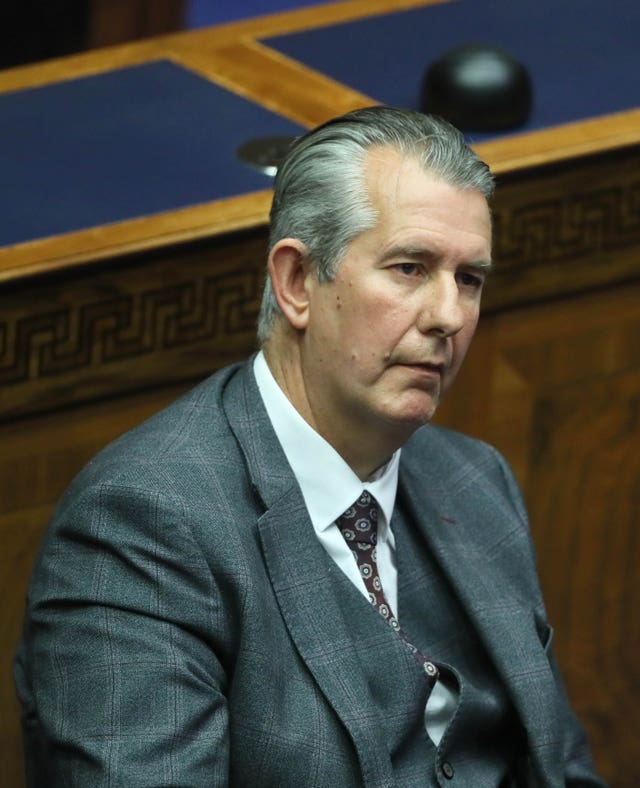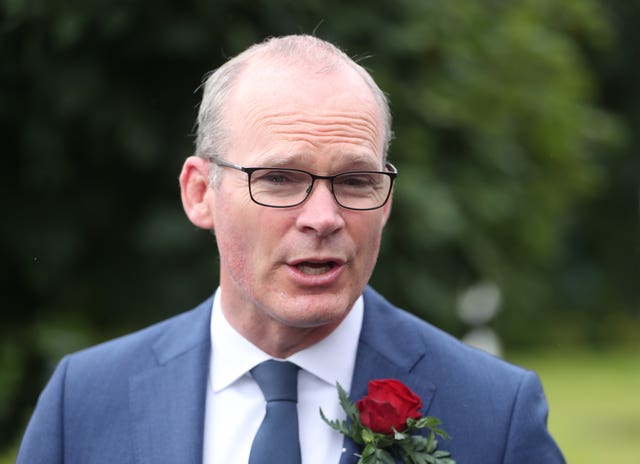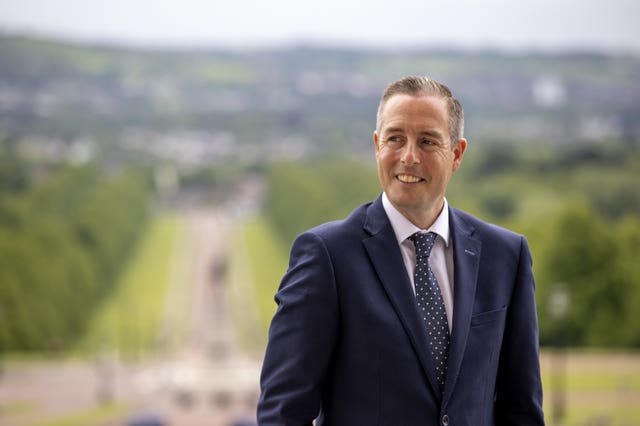Irish premier Micheal Martin has urged those at the centre of the political crisis in Northern Ireland to remain “calm”, as the province emerges from a “very turbulent” 24 hours.
Mr Martin said it was important everyone worked collectively to maintain stability in Northern Ireland.
Edwin Poots announced he was quitting as leader of the DUP on Thursday, just weeks after taking up the role.
The DUP is now searching for a new leader, after party members rebelled against Mr Poots’ decision to nominate Paul Givan as Northern Ireland First Minister.
Speaking in Dublin, Mr Martin said it had been a difficult period for Northern Ireland.
“It has been a very turbulent 24 hours,” he said.
“I think it is very important that we all work collectively on the island towards maintaining stability and calm heads and staying focused on what is important to the people within Northern Ireland,” he added.
“That is a Government that can work on fundamental pressing issues, like the health services, Covid-19 and indeed the broader economic issues.
“The Government will work with all parties and the British Government to protect the institutions, the Good Friday Agreement and work to ensure the continuation of the Assembly and the Executive.

“It’s been a very difficult period but it’s important we stay focused on the issues. We will work with the new leadership – that is a matter for the DUP – and whoever emerges as their leader.
“We will work constructively with the new leader. It’s been a very difficult time for the outgoing leader Edwin Poots but I think it’s important that we maintain relationships.”
The vast majority of DUP MLAs and MPs voted against Mr Poots’ decision to proceed with reconstituting the Stormont Executive, amid party anger at a UK Government pledge to grant Sinn Fein a key concession on Irish language laws.
The UK Government committed to passing the stalled laws in the autumn if they were not moved at the Stormont Assembly in the interim.
Mr Martin said the implementation of the Irish Language Act should not be the cause of division.
“The Irish Language Act has been agreed on a number of occasions by a number of parties at different times and it’s been on the agenda for some time,” he added.
“The Irish Language Act and its implementation should not be the cause of division so I don’t think the British Government made a mistake. I think they were working in good faith.
“(Secretary of State) Brandon Lewis had a view on this for some time, given a year ago it was signed up to by the parties, and he was of the view that we needed to press on if it was not delivered in the Assembly.

“All parties have agreed to the Irish Language Act.
“Language is something that should unite, it shouldn’t be the cause of political division.”
Earlier, Ireland’s Foreign Affairs Minister said the “last thing” Northern Ireland needed was for its largest party to be divided.
Simon Coveney said the DUP should be given “space” to respond to the challenges it was facing.
Mr Coveney told RTE’s Morning Ireland programme: “We’re back to square one, if you like, where the party has to find a way of electing a new leader that can unite the DUP, or at least attempts to.
“And that’s important for politics in Northern Ireland.”
He added that, with the region facing “potentially a very tense summer”, what was needed was “stability and some predictability” in Northern Ireland politics.
Mr Coveney also said it was “hard to tell” whether Paul Givan would quit as Stormont’s First Minister following Mr Poots’ resignation.

“The DUP is remaining very tight-lipped in terms of their approach to the First Minister, and, of course, electing a new leader. Whether that will be by contest, or whether they’ll rally behind one name now, is hard to know,” he said.
“We’ll have to wait and see what happens in relation to Paul Givan as First Minister.
“As of now, he is the First Minister in Northern Ireland. He’s been selected and elected yesterday into that position.
“But so much has changed in those 24 hours that you have to say there’s a lot of uncertainty.”
The Fine Gael TD said an election in Northern Ireland at this time would be too “divisive” and that all parties should work towards stabilising the political situation.
“What’s needed now is stability and political leadership as opposed to an election at a time of real polarisation and tension across Northern Ireland within communities and society,” the minister said.
“I think we have enough challenges right now, without a very divisive, polarising election in Northern Ireland, but that is what could happen if political leadership can’t find a way of stabilising things in Northern Ireland.”




Comments: Our rules
We want our comments to be a lively and valuable part of our community - a place where readers can debate and engage with the most important local issues. The ability to comment on our stories is a privilege, not a right, however, and that privilege may be withdrawn if it is abused or misused.
Please report any comments that break our rules.
Read the rules here